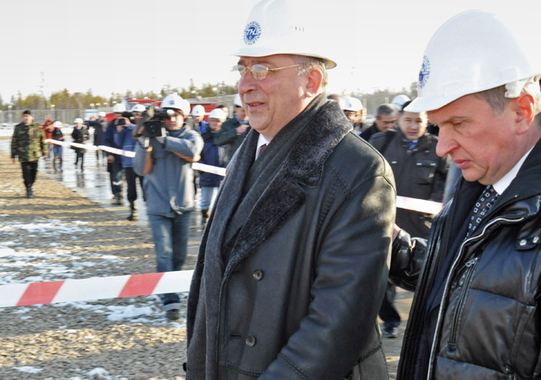
Russia’s largest oil company Rosneft and oil pipeline monopoly Transneft have reached a compromise on the transport of oil and oil products for 2017. Rosneft had held out on signing a contract for 2017, which would have left Rosneft without a means to ship their product and Transneft with billion of lost revenue from transport fees.
The dispute between the two power players is longstanding, and stems from the disagreement over compensation payments.
Novatek CEO Nikolai Tokarev and Rosneft head Igor Sechin are both long-time Putin allies, having worked under the President in the 1990s for the city of Saint Petersburg. The two bosses recently met with Russian Energy Minister Alexander Novak and presented the final resolution.
Under the agreement, Rosneft will transport 180,346 million tons of oil via Transneft pipelines, and will ship oil and petroleum products from its recently acquired company Bashneft. The amount of Rosneft will pay to use Transneft’s infrastructure was defined vaguely as “depending on the tariff, amount of oil, and transportation routes.”
Transneft enjoys a monopoly on the transport of Russian oil, shipping more than 90 percent. Rosneft is Russia’s largest producer of oil, accounting for about 40% of the country’s total output.
In December, the pipeline operator, threatened halt pipeline shipments of Rosneft’s oil if a contract wasn’t signed before the end of the year, but this move was blocked by the courts.
With more than 70,000 of kilometers of pipelines, Transneft is the world’s largest oil pipeline company. The company’s monopolistic position makes it a target of not only Rosneft, but also small independent oil producers vying for access to pipelines.
Louise Dickson
